Postpartum OCD: The Scary Thoughts No One Talks About
Becoming a parent is supposed to be one of the most joyful times in life—but for many new moms (and dads), it can also bring overwhelming anxiety and disturbing, intrusive thoughts that feel terrifying and isolating.
If you’ve ever had a sudden, unwanted thought like:
“What if I drop the baby?”
“What if I lose control and hurt them?”
“What if I don’t really love my baby?”
You're not alone—and you’re not dangerous or broken. These are signs of Postpartum Obsessive-Compulsive Disorder (OCD), a misunderstood and often misdiagnosed condition that many people silently suffer through.
At BrainBody Wellness OCD Counseling in Scottsdale, AZ, we specialize in helping new parents navigate the challenges of Postpartum OCD with compassion, expertise, and evidence-based treatment.
What Is Postpartum OCD?
Postpartum OCD is a subtype of Obsessive-Compulsive Disorder that can develop during pregnancy or after the birth of a child. Unlike postpartum depression, which often involves sadness and low mood, postpartum OCD is driven by fear and intrusive thoughts—often violent, sexual, or otherwise disturbing in nature.
These thoughts are ego-dystonic, meaning they go completely against your values and who you are. That’s why they’re so upsetting.
Postpartum OCD often begins suddenly after childbirth and can cause intense distress due to unwanted, intrusive thoughts.
Common symptoms include:
Obsessions: Unwanted, repetitive thoughts or images, often about harming the baby or doing something wrong
Compulsions: Behaviors or mental rituals to "undo" or neutralize the thought (e.g., avoiding sharp objects, excessive checking, praying)
Extreme anxiety or guilt over having the thoughts
Avoidance of caregiving tasks due to fear of acting on thoughts
Important: Parents with Postpartum OCD are highly unlikely to act on their thoughts. The fear itself is proof of how much they care.
You Are Not Alone - And You Are Not a Bad Parent
The hardest part of Postpartum OCD is often the shame. Many new parents suffer in silence, fearing judgment or that someone will take their baby away.
But here's what we want you to hear loud and clear:
Having scary thoughts doesn’t make you a bad parent. It makes you human.
Studies show that up to 50% of new parents experience intrusive thoughts after childbirth. For some, these thoughts become persistent and life-disrupting—crossing into diagnosable OCD.
You’re not weak. You’re not crazy. You’re struggling with a real condition that’s highly treatable.
What Causes Postpartum OCD?
There’s no single cause, but several risk factors may contribute:
Hormonal shifts during and after birth
Sleep deprivation
Personal or family history of anxiety or OCD
Perfectionism or fear of making mistakes
Stressful or traumatic childbirth experiences
Effective Treatment Is Available
At BrainBody Wellness Counseling, we specialize in Postpartum OCD treatment using the most effective, evidence-based therapies available:
Exposure and Response Prevention (ERP)
The gold standard for OCD, ERP helps you confront scary thoughts in a safe, gradual way -without doing compulsions - so your brain learns you’re not in danger.
ACT (Acceptance and Commitment Therapy)
ACT helps you build a healthier relationship with your thoughts while taking actions aligned with your values as a parent.Parenting and Psychoeducation Support
We help you understand what’s happening in your brain and body, and support you in navigating the demands of new parenthood.
You Deserve Support. You Deserve Peace.
You’re not failing. You’re not dangerous. You’re not alone.
You’re a loving parent going through something hard—and you deserve to feel safe, whole, and connected again.
At BrainBody Wellness OCD Counseling, we provide specialized support for OCD and postpartum mental health, both in-person in Scottsdale, AZ and online throughout Arizona. Our team is here to walk with you—not judge you.
Reach Out for the Support You Deserve
If you’re having intrusive thoughts after having a baby, or feel overwhelmed by fear, guilt, or anxiety—you don’t have to suffer in silence. Help is available, and healing is possible.
References:
Fairbrother, N., & Abramowitz, J. S. (2007). New parenthood as a risk factor for the development of obsessive-compulsive symptoms. Clinical Psychology: Science and Practice, 14(1), 62–68.
Abramowitz, J. S., Schwartz, S. A., Moore, K. M., & Luenzmann, K. R. (2003). Obsessive-compulsive symptoms in pregnancy and the puerperium: A review of the literature. The Journal of Anxiety Disorders, 17(4), 461–478.
Paul, I. M., Downs, D. S., Schaefer, E. W., Beiler, J. S., & Weisman, C. S. (2013). Postpartum anxiety and maternal-infant health outcomes. Pediatrics, 131(4), e1218–e1224.
International OCD Foundation. (n.d.). Postpartum OCD. Retrieved from https://iocdf.org
National Institute of Mental Health (NIMH). (2023). Obsessive-Compulsive Disorder (OCD). Retrieved from https://www.nimh.nih.gov/health/topics/obsessive-compulsive-disorder-ocd



